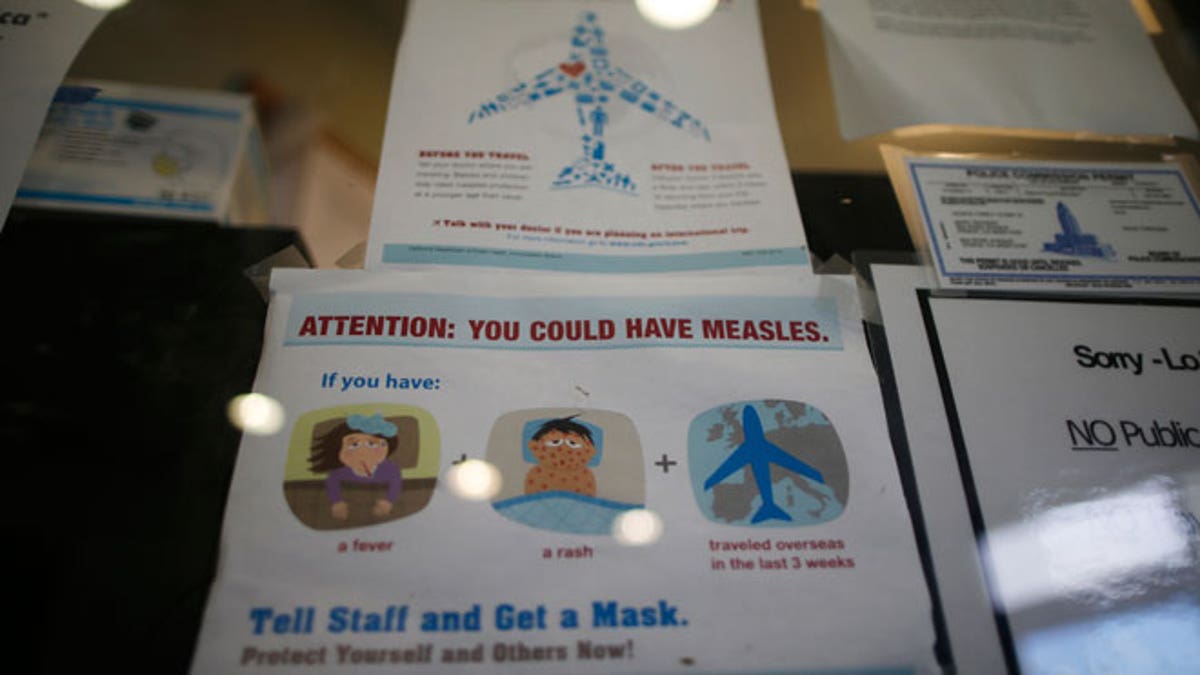
A measles poster is seen at Venice Family Clinic in Los Angeles, California February 5, 2015. (REUTERS/Lucy Nicholson)
The Northern California commuter who health officials say may have exposed tens of thousands of people to measles while riding San Francisco's Bay Area Rapid Transit system while infectious is an employee of LinkedIn Corp, the social networking company said on Thursday.
The passenger, who commuted to and from LinkedIn's offices in San Francisco on three days last week and also spent time at a San Francisco restaurant and bar, represents the first case of measles confirmed in Contra Costa County during an outbreak of the disease that began in December.
"On Tuesday, Feb. 10, we were informed that an employee based in our San Francisco office was diagnosed with measles. We are working very closely with the San Francisco Department of Public Health, and following their recommended protocol for managing this situation," LinkedIn said in a written statement.
"The health and well-being of our employees is our absolute top priority, and we will take whatever steps are advised to ensure their safety and the safety of the general public," the business-oriented social networking site said.
Hani Durzy, director of corporate communications, said the company was keeping its employees informed about the situation but that it was otherwise "business as usual" in its San Francisco offices. The infected employee was doing fine, he said.
Public health officials have sought to assure BART riders that the risk of contracting measles was very low if they had been inoculated, while urging anyone who had not to get the vaccine.
According to the California Department of Public Health, 110 cases of measles have been confirmed in California, 39 of them linked to the outbreak that authorities believe began when an infected person from out of the country visited Disneyland in late December.
More than three dozen more cases have been documented in other U.S. states and in Mexico. Most people recover from measles within a few weeks, although it can be fatal in some cases.
The measles outbreak has renewed a debate over the so-called anti-vaccination movement, in which fears about potential side effects of vaccines, fueled by now-debunked research suggesting a link to autism, have prompted a small minority of parents to refuse inoculations for their children.
Measles was declared eliminated in the United States in 2000 after decades of intensive childhood vaccine efforts. But in 2014 the country had its highest number of measles cases in 20 years.
